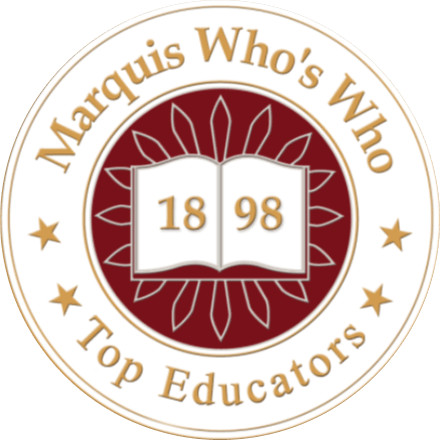Title: Professor
Company: Kazakh-American Free University in Ust-Kamenogorsk, Kazakhstan
Location: Beaverton, Oregon, United States
Patrick C. Mitchell, PhD, professor at the Kazakh-American Free University in Ust-Kamenogorsk, Kazakhstan, has been recognized by Marquis Who’s Who Top Educators for dedication, achievements, and leadership in computer science.
With almost six decades of experience, Dr. Mitchell has built a distinguished career in computer science and servant leadership. He has served as a professor at the Kazakh-American Free University since 2000, where he also volunteers with Co-Serve, an organization dedicated to mentoring young adults to become servant leaders. Kazakh-American Free University is committed to providing high-quality education through a blend of American and Kazakh academic traditions. In this role, he is passionate about challenging traditional leadership practices and promoting a collaborative, empathetic approach to leadership. His previous roles include programmer, manager, and researcher at Intel Corporation from 1976 to 2000 and software development manager at MRI Systems, a company specializing in database technology, from 1976 to 1979. He is also a member of the Association of Computing Machinery, a leading organization dedicated to advancing computing as a science and profession through conferences, publications, and professional development, and continues to volunteer with Co-Serve.
Laying a solid educational foundation, Dr. Mitchell earned a bachelor’s degree in mathematics from Washington State University in 1966, a master’s degree in information science in 1968, and a PhD in computer science in 1971. He was the third person to earn a computer science PhD in the Pacific Northwest. His doctoral thesis focused on developing efficient methods for storing and retrieving natural language on computers, a groundbreaking work that predated the current era of artificial intelligence. Early in his career, he implemented these findings at the Department of Justice, revolutionizing the access and analysis of Supreme Court decisions, which had previously relied on manual processes with printed texts. His innovative system remained in operation for three decades, marking a significant advancement in legal technology before being replaced by more modern solutions.
Dr. Mitchell takes great pride in his work in Intel’s Mobile Technology Lab, where he and his team solved anything that slowed the early adoption of laptops. One critical issue prevented users from unplugging their laptops from the network without causing software crashes; remember – wireless networks did not exist then! He led a team to develop technology that allowed computers to run seamlessly while disconnecting, which boosted computer sales. Despite initial disinterest from Novell, then the leading provider of networking software, his innovation eventually inspired them to create a similar successful solution. Additionally, he chaired a committee of Intel fellows that supported university research, and he mentored a software project at Carnegie Mellon University, where he served on the doctoral committee.
Early in life, Dr. Mitchell discovered the values and talents God had gifted to him. These were fashioned into the passions that led him through his education and career. He also attributes his success to the strong support from his parents. Despite his father’s inability to graduate high school due to World War II, his determination to provide a quality education for his children laid the foundation for his children’s academic achievements. He also acknowledges the significant influence of his high school math teacher, Harold Hauser, whose passion for mathematics and inspiring guidance motivated him to major in math in college. In the coming years, his goals include creating stronger bonds with his family relationships and ensuring the success of servant leadership programs that nurture future leaders. In advising aspiring professionals, he recommends seeking opportunities to innovate by either introducing novel solutions or enhancing existing methods. Reflecting on his own career, he emphasizes how challenging conventional approaches and proposing effective alternatives have driven his success. And for all this, he thanks the Lord.
Contact Dr. Mitchell:
